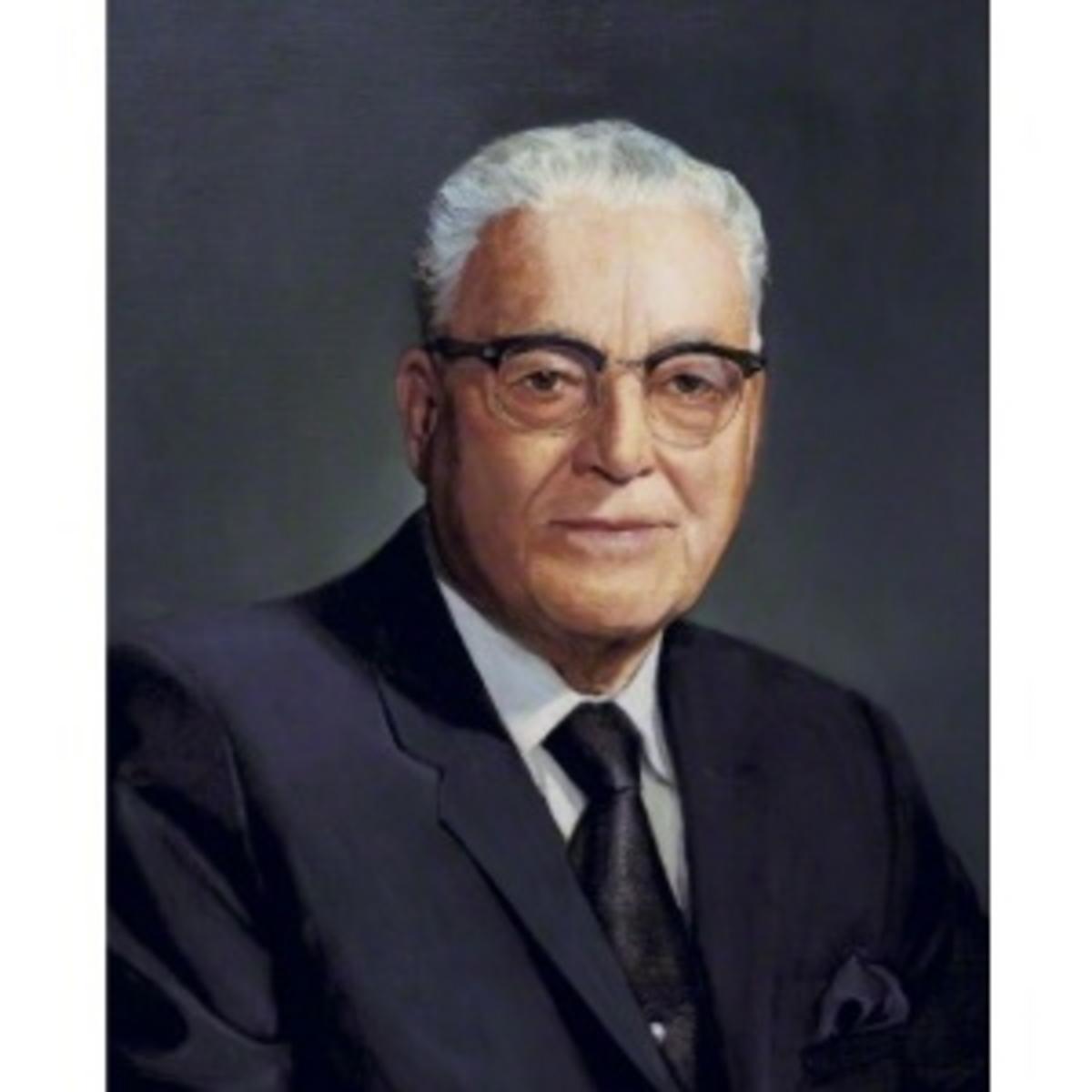The Book of Mormon 2020 Come, Follow Me—For Individuals and Families lesson for May 4-10 focuses on the teachings of the Prophet Abinadi. He suffered being arrested in order to warn the rulers and people of his times. King Noah and his chief priests, however, would not listen to Abinadi’s forewarnings that if they did not repent, they would be enslaved, endure many afflictions, and many would suffer “the pains of death by fire” (Mosiah 17:15).

Most of the leaders did not listen because they thought these predictions would never occur. However, all of Abinadi’s prophecies came to pass. Gideon, the king’s captain, explained that the slavery that survivors experienced came “because we would not hearken unto the words of the Lord, and turn from our iniquities” (Mosiah 20:21).
Following Living Prophets
This invites each of us to question ourselves: “Do we listen to our Prophet today?” It is critical for us to pay attention and do what the Lord’s living prophet tells us to do.

At the October 2014 general conference, then Elder Russell M. Nelson urged: “Often we sing, ‘We thank thee, O God, for a prophet’ (Hymns, No19). Do you and I really understand what that means? Imagine the privilege the Lord has given us of sustaining His prophet, whose counsel will be untainted, unvarnished, unmotivated by any personal aspiration, and utterly true!” (“Sustaining the Prophets,” Ensign, Nov. 2014).

Twenty-six years before he became President of the Church, then-Elder George Albert Smith said: “The obligation that we make when we raise our hands … is a most sacred one. It does not mean that we will go quietly on our way and be willing that the prophet of the Lord shall direct this work, but it means … that we will stand behind him; we will pray for him; we will defend his good name, and we will strive to carry out his instructions as the Lord shall direct” (Teachings of Presidents of the Church: George Albert Smith (2011), 64)

President Harold B. Lee added this powerful counsel: “You may not like what comes from the authority of the Church. It may contradict your political views. It may contradict your social views. It may interfere with some of your social life. But if you listen to these things, as if from the mouth of the Lord Himself, with patience and faith, the promise is that ‘the gates of hell shall not prevail against you; yea, and the Lord God will disperse the powers of darkness from before you, and cause the heavens to shake for your good, and his name’s glory’ (Doctrine and Covenants 21:6). To you Latter-day Saints everywhere, that promise will be yours if you will follow the leadership the Lord has placed within the Church, giving heed to their counsel in patience and faith. Look to the President of the Church for your instructions. If ever there is a conflict, you keep your eyes on the President if you want to walk in the light” (Teachings of Presidents of the Church: Harold B. Lee (2000), 84-85).
Establishing Early Safeguards
When and where do we begin to safeguard ourselves?

President Spencer W. Kimball offered this timeless counsel: “Right decisions are easiest to make when we make them well in advance, having ultimate objectives in mind; this saves a lot of anguish at the fork, when we’re tired and sorely tempted. When I was young, I made up my mind unalterably that I would never taste tea, coffee, tobacco, or liquor. I found that this rigid determination saved me many times throughout my varied experiences. There were many occasions when I could have sipped or touched or sampled, but the unalterable determination firmly established gave me good reason and good strength to resist. The time to decide on a mission is long before it becomes a matter of choosing between a mission and an athletic scholarship. The time to decide on temple marriage is before one has become attached to a boyfriend or girlfriend who does not share that objective. The time to decide on a policy of strict honesty is before the store clerk gives you too much change. The time to decide against using drugs is before a friend you like teases you for being afraid or pious. The time to decide that we will settle for nothing less than an opportunity to live eternally with our Father is now, so that every choice we make will be affected by our determination to let nothing interfere with attaining that ultimate goal” (“Decisions: Why It’s Important to Make Some Now,” New Era, April 1971).
Prophets Point the Way

A prophet is not an executive who dictates what we must do. At the Solemn Assembly where Russell M. Nelson was sustained as President of The Church of Jesus Christ of Latter-day Saints, Elder Neil L. Andersen explained: “A prophet does not stand between you and the Savior. Rather, he stands beside you and points the way to the Savior. A prophet’s greatest responsibility and most precious gift to us is his sure witness, his certain knowledge, that Jesus is the Christ. Like Peter of old, our prophet declares, ‘[He is] the Christ, the Son of the living God’ (Matthew 16:16)’” (“The Prophet of God,” Ensign, May 2018).
